Agriculture
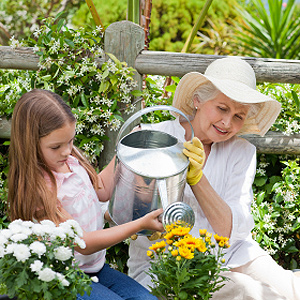
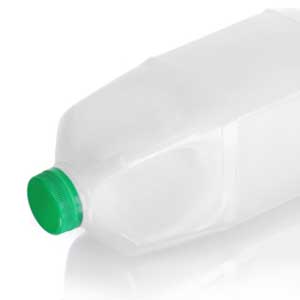
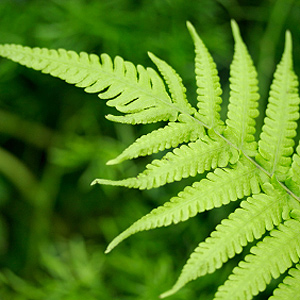
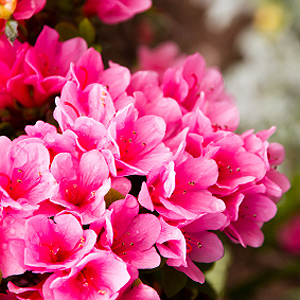
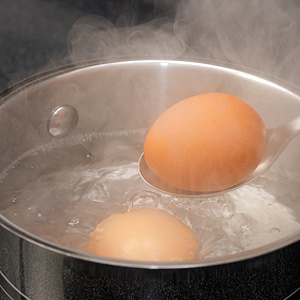 ? Eggs: Hardboiled eggs leave calcium in the cooking water, so use the liquid to water calcium-loving solanaceous garden plants: tomatoes, potatoes, eggplants, peppers, chayote squash, tomatillos.
? Eggs: Hardboiled eggs leave calcium in the cooking water, so use the liquid to water calcium-loving solanaceous garden plants: tomatoes, potatoes, eggplants, peppers, chayote squash, tomatillos.
- Gardening With Epsom Salt
Epsom salt is a popular and well-reputed supplement in organic gardening. With the recent push towards ?green? living, Epsom salt is an ideal answer to a variety of organic gardening needs. Both cost effective and gentle on your greenery, Epsom salt is...
- 10 Natural Fertilizer Recipes
Article Taken From http://www.homegrownfun.com/ By Home Grown Mom - Cindy Look around the house and locally for materials you can use to make your own fertilizers. If you like to recycle, also check out ?Funny Ways to Recycle Human Hair to Stay Green?....
- Effects Of Vinegar And Baking Soda On Soil Ph
Saturday, July 20, 2013 By Michelle Brunet Most plants prefer a soil pH between 6 and 7, states Cornell University's Garden Mosaics. A pH over 7 is alkaline and less than 7 is acidic. Some plants prefer an acidic soil less than 6, such as lilies,...
- Homemade Bottle Drip Irrigation System
The last time I forgot to water my outdoor potted plants and discovered them completely wilted and hanging on the cusp of near death, I decided it was time to take action. Some of the plants on my deck receive a full, searing sun all day long during the...
- Tea Used In Gardening
There is some question about the allelopathic effects of caffeine (and maybe other chemicals) in brewed tea and coffee. Better, perhaps, to drink the tea and use the spent tea leaves on your plants. Give roses a boostSprinkle new or used tea leaves...
Agriculture
5 Secrets To Watering Your Garden
1. Try a Toothpick Watering Test
Just as you test a baking cake for doneness by sticking it with a wooden toothpick, you can do the same to see whether a garden bed needs watering. Stick the toothpick into the soil as far as it will go, then examine it. If it comes out clean, it's time to water. If any soil clings to the pick, you can forgo watering and test the soil again the next day

2. Bury Milk Jug Tricklers
Tomatoes aren't the only garden plants that like lots of water. Others with a big thirst include squashes, melons, and rosebushes. How to keep them quenched? Bury plastic milk-jug reservoirs alongside. Start by perforating a jug in several places. Dig a planting hole large enough to accommodate both plant and jug, and bury the jug so its spout is at soil level. After refilling the hole and tamping down the soil, fill the jug with water. Then top it to overflowing at least once a week, and your plant's roots will stay nice and moist.

3. Offer a Cup of Tea To Your Ferns
Also, when planting a fern, put a used tea bag in the bottom of the planting hole to act as a reservoir while the fern adapts to its new spot; the roots will draw up a bit more nitrogen. Another drink ferns like: a very weak solution of household ammonia and water (1 tablespoon ammonia to 1 litre water), which also feeds them a little nitrogen.

4. Add Borax to Sun-Sensitive Plants
To keep direct sunlight from burning the leaves of ferns, azaleas, yews, hollies, hostas, and herbs such as thyme and chives, add borax to your watering can ? 1 tablespoon dissolved in 4 litres of water. Wet the leaves of the plants and soak the soil with the solution a couple of times in the spring (more than two treatments is overdoing it), and your plants will be better able to stand up to the sun's hot rays in summer.

5. Recycle Unsalted Cooking Water
Boiled foods release nutrients of one kind or another, so why pour their cooking water down the drain? Let the water cool, and then use it to give a garden plant or two a healthful drink. But take note: When you cook any of the following, do not add salt to the water because salt is harmful to plants.
 ? Eggs: Hardboiled eggs leave calcium in the cooking water, so use the liquid to water calcium-loving solanaceous garden plants: tomatoes, potatoes, eggplants, peppers, chayote squash, tomatillos.
? Eggs: Hardboiled eggs leave calcium in the cooking water, so use the liquid to water calcium-loving solanaceous garden plants: tomatoes, potatoes, eggplants, peppers, chayote squash, tomatillos. ? Spinach: Plants need iron, too ? and spinach water gives them not only iron but also a decent dose of potassium.
? Pasta: Starchy water will spur the release of plant nutrients in the soil, meaning starch may be better for plants than for you.
? Potatoes: Ditto.
Source of Article: 

- Gardening With Epsom Salt
Epsom salt is a popular and well-reputed supplement in organic gardening. With the recent push towards ?green? living, Epsom salt is an ideal answer to a variety of organic gardening needs. Both cost effective and gentle on your greenery, Epsom salt is...
- 10 Natural Fertilizer Recipes
Article Taken From http://www.homegrownfun.com/ By Home Grown Mom - Cindy Look around the house and locally for materials you can use to make your own fertilizers. If you like to recycle, also check out ?Funny Ways to Recycle Human Hair to Stay Green?....
- Effects Of Vinegar And Baking Soda On Soil Ph
Saturday, July 20, 2013 By Michelle Brunet Most plants prefer a soil pH between 6 and 7, states Cornell University's Garden Mosaics. A pH over 7 is alkaline and less than 7 is acidic. Some plants prefer an acidic soil less than 6, such as lilies,...
- Homemade Bottle Drip Irrigation System
The last time I forgot to water my outdoor potted plants and discovered them completely wilted and hanging on the cusp of near death, I decided it was time to take action. Some of the plants on my deck receive a full, searing sun all day long during the...
- Tea Used In Gardening
There is some question about the allelopathic effects of caffeine (and maybe other chemicals) in brewed tea and coffee. Better, perhaps, to drink the tea and use the spent tea leaves on your plants. Give roses a boostSprinkle new or used tea leaves...

